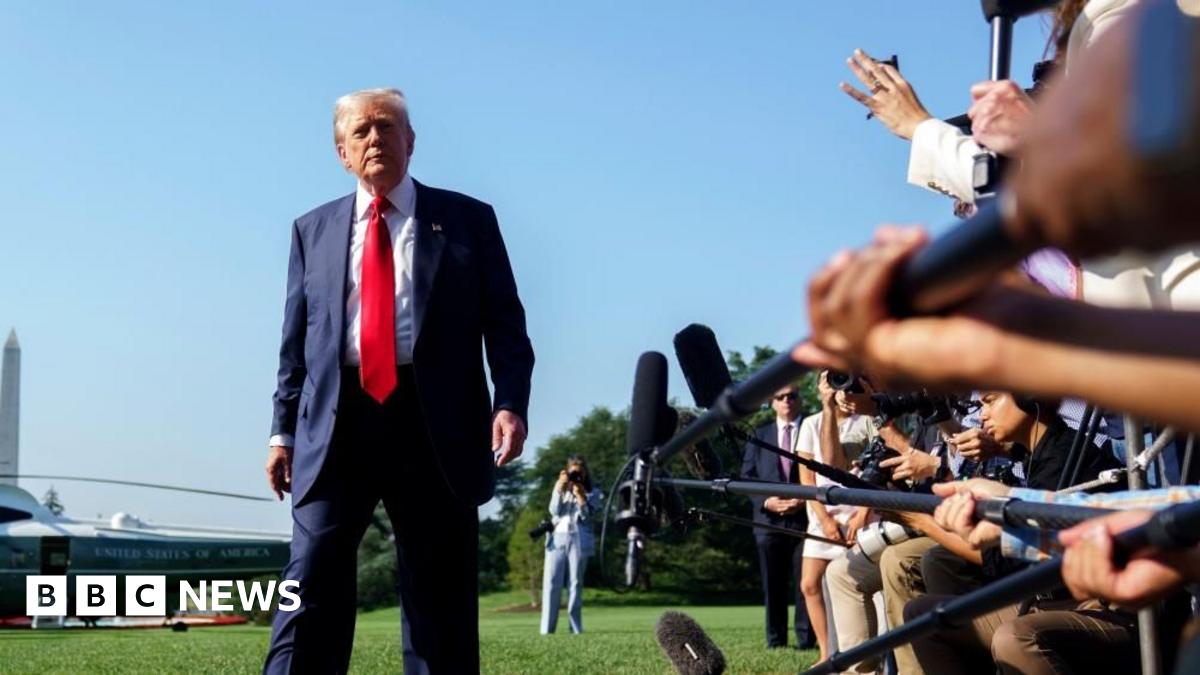Even in an eventful year like this one, the noisiest crises aren’t always the most consequential. The war in Ukraine, the tariff spats and the continuing turmoil in the Middle East have dominated the headlines. But future historians may well say that the most important developments of our times were taking place elsewhere.
Ever since Hillary Clinton served as secretary of state in President Obama’s first term, Americans have talked about the importance of pivoting to Asia. The belief that the 21st century will be driven by events in the Indo-Pacific is a bipartisan cliché. Yet as a society we find the psychological shift from our old Eurocentric habits hard to make.
The biggest beneficiary of this cultural blind spot is Chinese leader Xi Jinping. While Western attention was largely on events in Ukraine and the Middle East, China has been steadily moving toward its long-term goals.
The pressure on Taiwan continues to grow. Taiwanese authorities recently detained a Chinese-crewed cargo ship suspected of severing a strategic undersea communications cable off the island’s southwest coast. More ominous still, China appears to be constructing a fleet of barges that, like the Mulberry Harbors used in the 1944 D-Day invasion of Normandy, will be able to deliver troops and battle equipment onto beaches. With Chinese forces practicing landings, the message to Taiwan could hardly be clearer.
It isn’t only Taiwan feeling the pressure. Last month the Australian government reported “an unsafe and unprofessional interaction” with a People’s Liberation Army fighter aircraft in the South China Sea. Farther afield, Chinese warships held live-fire exercises in waters between Australia and New Zealand in an unprecedented display of Beijing’s naval ambition and reach.
Two Chinese research vessels are raising hackles in New Delhi, conducting detailed surveys in sensitive sites around the Indian Ocean. China and the Cook Islands, a Pacific island nation, announced a comprehensive partnership that significantly advances Chinese interests. Meanwhile, Chinese ships joined Iranian and Russian vessels in maneuvers off Oman.
On land, China has stepped up its support for Myanmar’s beleaguered junta. With Myanmar sending workers to Russia to fill manpower shortages in multiple sectors caused by the Ukraine war, a key southeast Asian country has tilted decisively in the direction of Beijing and its allies.
Thailand has been giving off similar vibes lately, deporting 40 Uyghur refugees to China, where they will face whatever retribution Beijing chooses to inflict. American diplomats had long sought to persuade Thailand to refrain from returning them to Chinese custody, but China’s voice currently matters more than America’s in the halls of Bangkok.
Buoyed by the success of DeepSeek, the innovative artificial-intelligence company that Chinese sources claim was able to lead the frontier of AI development more quickly and for much less money than Silicon Valley competitors, China is also pushing toward what it hopes will be tech dominance. Beijing is doubling down on support to its leading tech firms, while ensuring that those firms stay close to the Communist Party. Anxious to keep its top talent at home, Beijing has directed executives and researchers involved in the tech sector not to travel to the U.S. Chinese companies are openly boasting about circumventing American sanctions and export controls.
That so much Chinese activity hasn’t drawn stronger responses or more attention from the West is good news for Mr. Xi. In the old days of Deng Xiaoping’s “hide and bide” strategy, a smaller, weaker China sought to evade hostile international scrutiny by pursuing an unambitious foreign policy. It played down threats against its neighbors, spoke of common efforts to solve territorial disputes, and muted its rhetoric against countries like Japan and the U.S.
But these days China can have it all. Because the world has become so disorderly, and because policymakers in Washington and elsewhere are caught up in addressing the burning issues of the day, Beijing can take dramatic steps that would have provoked international crises in Deng’s time, and today’s West hardly seems to notice.
What this means for the Trump administration foreign policy is simple: China isn’t going to play nice. From China’s perspective, American power is in rapid retreat. Our alliances are fraying, our social cohesion is weakening, and as China sees it, President Trump’s style of apparently impulsive leadership, while capable of delivering an occasional unwelcome surprise, is amateurish and likely to fail.
Team Trump wants to break up the alignment among China, Russia and Iran by intimidating Iran and seducing Vladimir Putin. China will use every asset it can muster to keep the axis united and to keep its fellow revisionists pushing back against America’s international position. China’s steady progress toward key goals in the Indo-Pacific reminds both Russia and Iran of the limits of American power, and will encourage revisionists everywhere to stay the course.

